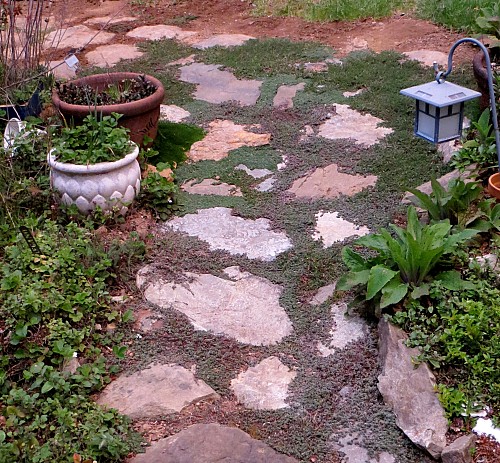Gorgeous Garden Path Design and Installation: a Homeowner Guide
A great garden path is the perfect combination of practical and pretty. It protects your lawn and flowerbeds and provides the perfect accent to attractive landscaping. Here’s our guide to path planning and installation.
Plan the Ideal Garden Path
- Design your path on the diagonal – or a gentle curve. This type of layout maximizes eye appeal, as well as visually enlarging a small-sized garden.
- Add lighting so you can enjoy rambling along your path even after dark. Fourteen inches is the ideal height for garden lights. Solar lamps are eco-friendly, if your area gets plenty of sunshine. In cloudier climes, LED lights are an energy-efficient alternative.
- Install lawn edging to define your walkway and if necessary, to safeguard against erosion on a gentle slope. (A steeper yard may require a retaining wall.) For easier mowing, make the edging level with your lawn, and recess the path an inch or so.
- Plan to make your walkway at least 36 inches wide to accommodate a single person, walking alone or with a mobility device, or a minimum of 48 inches for two people side by side.
Pick the Perfect Path Material
1. Flagstone. Nothing beats a flagstone (“stepping stone”) path for rustic charm. However, building a walkway with this simple-looking natural material can be surprisingly expensive. The price includes the flagstone itself, large flat slabs of durable stone, which is obtained from quarries and costs approximately $2 to $5+ per square foot.
The second cost component is the supplies and labor to excavate, level the soil, and prepare a suitable foundation (sorry, you can’t just set the stones down on bare earth). Your more expensive, but easier-care, option, is a reinforced concrete slab, at about $6 to $15 per square foot, plus mortar to hold the flagstones in place. The cheaper alternative is also higher maintenance -- a bed of sand atop a gravel base – which runs about $10 to $25 per square foot.
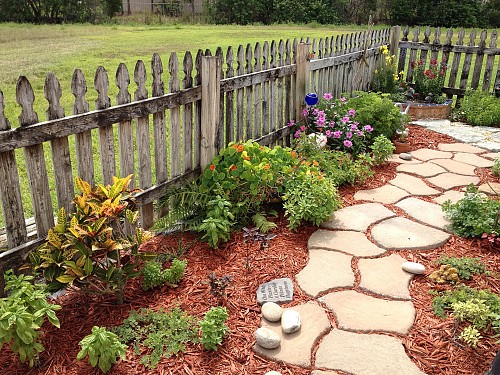
2. Pebbles or Gravel. Paths of decorative gravel or pebbles are quick and simple to construct. They are also one of the lowest cost options.
Another benefit is that a gravel or pebble garden path won’t become slippery when wet.
You will need to rake your pathway occasionally so the stone fill is even.
Dig a few inches into the soil to define the shape and ready a base for your path. Install edging that will help keep your fill material in place. Cover with a layer of compacted stone pack. Top with landscape fabric to prevent weed growth and finally, the pebbles or gravel of your choice, up to ½ inch from the top of the edging.
Cost to professionally install a gravel walkway 3 X 100 feet ranges from $500 to $2000 or more, depending on the materials and the complexity of the design.
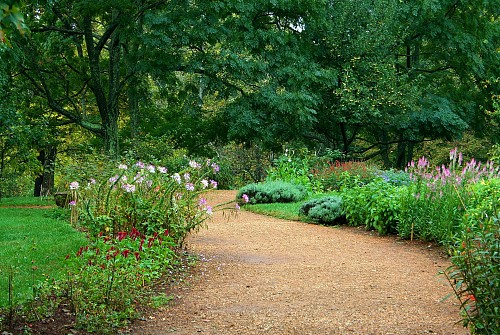
3. Concrete. Surprise! Modern concrete boasts an amazing sense of style along with affordability and ease of installation. Create a concrete walkway that glows with color and texture to complement your garden.
Check that a concrete truck can access your yard for the pour. Otherwise, the fresh mix will need to be hauled to the site in wheelbarrows.
Have your contractor cut control joints into the garden path before the concrete hardens, so the cracking which naturally occurs won’t be unsightly.
Cost to install a concrete walkway comprises the pour itself, at approximately $6-10 per square foot, plus extras. Colorant blended into the concrete mix adds about 50 cents a square foot, while hand tinting or stamping the finished surface is a labor-intensive project at $2-4 per sq. ft.
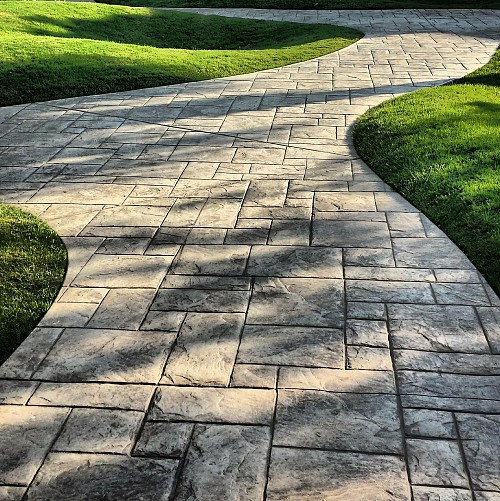
4. Brick or Pavers. A pathway made out of bricks or pavers is a handsome, durable addition to your outdoor space. A major advantage is that you can add onto, or even move, this type of garden walk fairly simply. However, laying the bricks or pavers correctly is painstaking – preferably a job for a seasoned professional!
Be sure to buy paving bricks (as opposed to wall bricks) to construct your walkway. Install metal or plastic edging to keep the brickwork in its place.
The cost of installation, including materials and labor, is approximately $10-30 per square foot.
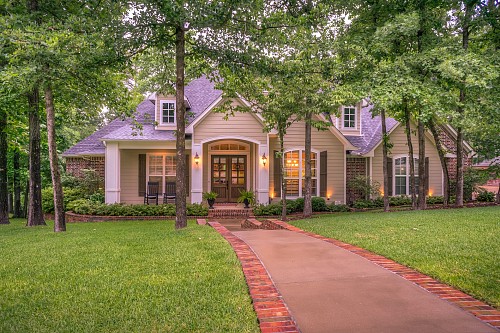
Laura Firszt writes for networx.com.
Updated July 17, 2018.
Looking for a Pro? Call us (866) 441-6648

Average Costs
Related Experiences

Yard Clean Up Left Our Lawn Looking Fantastic

Successful Removal Of A Very Large Tree


